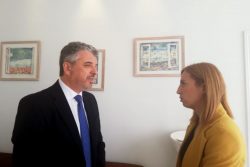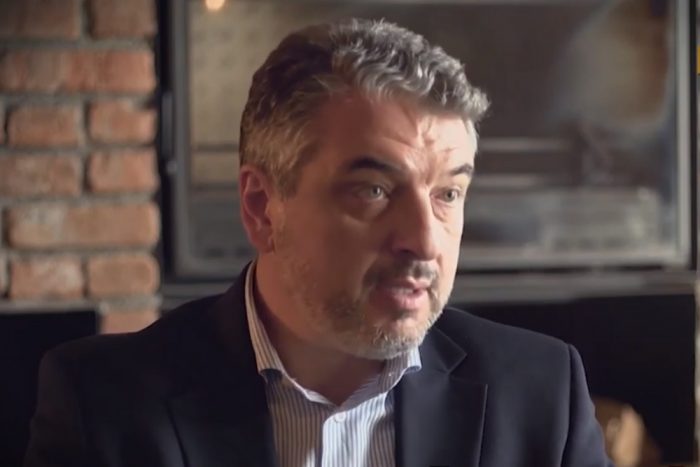Dr. Ioannis Armakolas, Assistant Professor at the Department of Balkan, Slavic and Oriental Studies, University of Macedonia and Head of the South-East Europe Programme at ELIAMEP, recently spoke to the North Macedonian MIA News Agency. He shared his views on the ongoing debate on the French proposal to change the current process of enlargement for the European Union, as well as the recent meeting of the Greek Prime Minister with Zoran Zaev in Thessaloniki.

These are some of his remarks:
About the changes regarding the enlargement process:
- There are ideas on how the enlargement process can be redesigned, but the EU has repeatedly shown that it is unable to make key and difficult decisions in a short period of time. The reform of the EU will be a tough battle that will have major political and economic consequences, but the Western Balkan states should not become the “victims” of this battle.
About Greece’s stance:
- Following its initial cautious stance, Greece has recently been mobilized in order to send the message that it will “fight” for the continuation of the enlargement process and will support the goal of reforms in the Western Balkans. The Prime Minister’s recent meetings with his counterparts from Albania and North Macedonia as well as the diplomatic assessments that France’s moves go directly against the Thessaloniki Agenda, and therefore in conflict with the Greek interests in the region, are all in the right direction. The Western Balkans and their EU perspective require the strong diplomatic presence of Greece.
- There should be further actions to support Zaev’s leadership in the near future, though this may not be particularly pleasing to many voters of the current Greek government. The leadership of North Macedonia has the most reformist, pro-European and conciliatory agenda in the Western Balkans. And it has proven that it does not fear the political cost when promoting this progressive agenda.
About the decision against the decoupling of North Macedonia from Albania at the last European Council meeting:
- The stand against the decoupling, which is shared by Greece, Germany, Italy and the majority of member states, may seem unfair to North Macedonia which has clearly taken more rapid steps to prepare for accession negotiations. But I believe that the decoupling would be the wrong policy given that both countries had done enough, at least for starting accession negotiations. Moreover, in the case of Albania, the decision would likely be a conditional start of negotiations.
- Opinions from various sides are now being voiced that show strong prejudice against Albania or even in general against Muslim majority countries of the region. Macron’s statements (to the Economist) could easily be misunderstood as an attempt to distinguish between “good” and “bad” states in the Balkans. This is a completely misplaced and dangerous perception.
- Following France’s veto, there may be new attempts for some kind of “indirect decoupling” in order to increase the chances of success for North Macedonia. If this is the case, then the move should be accompanied by clear messages to Albania and the other two Western Balkan countries that the road to the EU remains open for all three.
You can read the full interview here.




